Any Questions?
Aged Care in Sydney: Meeting the Needs of a Growing and Diverse Senior Population
Australia’s aged care sector is growing rapidly due to an ageing population. This trend creates numerous job opportunities for compassionate and skilled individuals who wish to build a rewarding career by supporting older people. Sydney is one of the most multicultural cities in the world, with nearly 40% of its population born overseas. Suburbs such as Blacktown, Hurstville, and Marrickville are home to large communities with diverse cultural and linguistic backgrounds. As the senior population grows, many older adults will need care that reflects their traditions, languages, and customs. Here, we explore the criteria, qualifications, personal qualities, and opportunities for those interested in aged care jobs in Sydney, New South Wales.
Why Choose a Career in Aged Care?
- Growing Demand: Aged care is one of Australia’s fastest-growing industries.
- Making a Difference: Support older adults in leading dignified and fulfilling lives.
- Diverse Roles: Opportunities range from nursing personal care to administrative, managerial, and human resources positions.
Overview of the Industry
The aged care industry is a cornerstone of Australia’s healthcare system, dedicated to providing essential care and support to older adults. As the population ages, the demand for aged care services continues to rise, creating many job opportunities for those passionate about making a real difference. The industry encompasses various types of care, including residential aged care, home care, and community care. Each area offers unique career paths, whether you’re interested in clinical care, personal care, or support services. From registered nurses to food service assistants, the aged care sector needs diverse professionals to ensure that all residents receive the highest quality of care.
Australia’s Growing Ageing Population: A Sector on the Rise
Australia is undergoing a significant demographic transformation. By 2030, 1 in 5 Australians will be 65 or older, driven by improved healthcare, longer life expectancies, and the ageing baby boomer generation. This trend underscores the critical need for skilled workers in the aged care sector to support older Australians across various settings.

Demand for Multicultural Aged Care Services in Sydney
Sydney’s aged care sector is evolving alongside its diverse senior population. Areas such as South West Sydney and the Northern Suburbs are home to highly multicultural communities, where residents hail from diverse cultural and linguistic backgrounds. This diversity is reflected in the aged care sector, where there is a growing demand for workers who can connect with seniors on a cultural and personal level.
For example, many older adults in these communities may prefer carers who understand their language, customs, or traditional practices. This helps foster trust and provides care that feels familiar and comforting. Multicultural workers are uniquely equipped to offer this level of culturally sensitive care, making them invaluable assets in the industry.
Sydney Northern Suburbs Aged Care
In Sydney’s northern suburbs, certain areas have a significant proportion of older residents:
- Hunters Hill: This suburb has one of the most mature populations in the Northern Sydney district, with a median age of 43.
- Mosman: Mosman also has a relatively older demographic, with a median age of 42.
- Ku-ring-gai: The median age in this area is 41, and a growing proportion of residents are 65 and older.
- Hornsby: Hornsby Shire is experiencing an increase in its ageing population. As of the 2021 Census, 16.2% of residents were 65 and over, and projections show an 8.2% growth in the retirement-age population between 2021 and 2026.
Overall, the proportion of people aged 65 years and over in Northern Sydney is forecasted to increase from 15% in 2011 to 18% in 2031. These demographics highlight the importance of tailored services and infrastructure to support the growing number of older adults in these areas.
Western Sydney Aged Care
In Western Sydney, Blacktown is one of Australia’s most diverse suburbs, with residents from 76 different birthplaces. This vibrant multicultural community also includes a growing ageing population, emphasising the region’s importance of culturally sensitive aged care services.
In Western Sydney overall, the proportion of residents aged 65 and over is generally lower compared to other regions; however, certain suburbs within Western Sydney have notable ageing populations:
- Greystanes: According to the 2021 census, 18.9% of residents were 65 years and over, exceeding the national average of 17.2%.
- Toongabbie: The 2021 census reported that 12.8% of residents were 65 and older.
Liverpool and Campbelltown: Growing Senior Populations
- Liverpool: This suburb is experiencing a notable increase in its ageing population. As of 2021, individuals aged 65 and over comprised approximately 10.9% of Liverpool’s population. Projections indicate a significant rise in this demographic, with a forecasted 48.8% increase in the retirement-age population between 2021 and 2031.
- Campbelltown: Similarly, Campbelltown is experiencing growth in its senior population. As of the 2021 Census, 11.8% of residents were 65 and over. Projections show a 35.1% increase in the retirement-age population between 2021 and 2031.
These trends highlight the growing need for multicultural aged care services and professionals in the region.
Southern Sydney Aged Care
In Southern Sydney, Hurstville is a prominent suburb experiencing an increase in retirement-age residents. Known for its significant Chinese community, Hurstville is home to a diverse and vibrant population, with a growing number of older adults contributing to its demographic profile.
Sydney’s Inner West Aged Care
In Sydney’s Inner West, Marrickville is a suburb renowned for its rich cultural diversity and a steadily growing ageing population. According to the 2021 Census, 14.8% of Marrickville residents are 60 and over.
The suburb’s multicultural fabric is highlighted by 34.1% of its population being born overseas, with significant communities originating from Vietnam, Greece, and Portugal.
The Importance of Culturally Appropriate Care
The Australian government and aged care providers increasingly recognise the importance of culturally appropriate care, especially as the nation’s ageing population becomes more diverse. Older Australians from culturally and linguistically diverse (CALD) backgrounds often face unique challenges when accessing aged care services. These can include language barriers, cultural misunderstandings, and feelings of isolation in environments that may not cater to their traditions or preferences.
Key Initiatives Supporting Culturally Appropriate Care
1. Bilingual Support Programs:
Many aged care facilities and home care providers are introducing bilingual staff who can communicate in their client’s preferred languages. This eliminates communication barriers and helps seniors feel understood and respected. For example, having a carer who can speak Mandarin, Arabic, or Greek can significantly enhance trust and comfort for seniors from those backgrounds.
2. Cultural Competence Training for Workers:
Aged care staff are being trained to understand and respect cultural differences to provide personalised care. This includes learning about specific dietary requirements, religious practices, social customs, and attitudes toward aging and care. Such training ensures that care is functional and emotionally and culturally supportive.
3. Targeted Services for CALD Seniors:
Providers are offering specialised programs tailored to the unique needs of CALD seniors. These include culturally specific meal plans, traditional activities or celebrations, and support groups where seniors can connect with others from similar backgrounds.
Opportunities for Job Seekers in Aged Care
This shift represents a significant opportunity for job seekers who are multilingual or who come from diverse cultural backgrounds. Aged care providers increasingly seek workers who can bridge cultural gaps and offer services that resonate personally with seniors. Multilingual professionals who understand diverse customs and traditions are uniquely positioned to thrive in this environment.
By joining the aged care sector, workers can make a meaningful impact by:
- Supporting seniors in maintaining their cultural identity while receiving care.
- Creating a welcoming and inclusive environment where seniors feel valued and understood.
- Helping families feel reassured that their loved ones receive care that respects their heritage and beliefs.

The Ideal Candidate: Traits and Skills
To excel in aged care, you should embody these qualities:
- Empathy and Compassion: A genuine desire to help others.
- Patience: Working with older people can require understanding and perseverance.
- Communication Skills: Essential for interacting with clients, families, and colleagues.
- Attention to Detail: Monitoring health and documenting changes are key responsibilities.
- Physical Stamina: Some roles involve manual tasks like lifting or assisting clients.
Qualifications Needed for Aged Care Jobs in Sydney
While specific qualifications depend on the role, common requirements include:
- Certificate III in Individual Support (Ageing): Entry-level qualification covering core skills like personal care and safety.
- Certificate IV in Ageing Support: Suitable for advanced roles, such as team leaders or specialised care.
- Diploma of Nursing: Required for those pursuing roles as Enrolled Nurses (ENs) in the aged care sector.
- Bachelor of Nursing: A prerequisite for Registered Nurse (RN) roles, enabling advanced medical care and management responsibilities in aged care.
- First Aid and CPR Certification: Mandatory for most positions.
- Police Clearance: Employers require a clean record to ensure the safety of vulnerable clients.
- COVID-19 Vaccination Certificate: A legal requirement in the healthcare sector.
- Additional Training: Knowledge in dementia care, palliative care, or mental health is often advantageous.
Employment Opportunities in Sydney’s Aged Care Sector
Sydney offers various roles in aged care, job vacancies include:
- Personal Care Workers (PCWs): Provide daily assistance with hygiene, meals, and mobility.
- Enrolled and Registered Nurses (ENs/RNs): Deliver medical care and oversee health plans.
- Lifestyle Coordinators: Plan activities and programs to enhance quality of life.
- Support Workers: Assist with errands, housekeeping, and companionship.
- Administrative Roles: Manage records, appointments, and communication.
Popular employers include:
- Residential aged care facilities.
- In-home care services.
- Community care organisations.
- Local councils and not-for-profits.
Supportive Environment in Aged Care
Creating a supportive environment is essential for delivering exceptional care, ensuring that both seniors and their caregivers feel a strong sense of belonging, comfort, and security. Aged care providers work diligently to foster a warm and welcoming atmosphere, encouraging personal relationships between aged care recipients, residents, staff, and family members. A supportive team is crucial in delivering high-quality care, and many providers prioritise staff well-being and professional development to maintain a positive and caring environment. This nurturing setting benefits those being cared for and enhances job satisfaction for the staff, making it a fulfilling workplace.
Salary Packaging and Benefits
Salary packaging, competitive salaries and a range of job benefits are often used by aged care providers to attract and retain top talent. One of the most appealing perks is salary packaging, which allows employees to reduce their taxable income by sacrificing part of their salary. This can lead to significant tax savings and increased take-home pay. Additionally, many providers offer professional development opportunities and access to employee assistance programs. Other benefits include meal allowances, uniform allowances, or service discounts, making aged care jobs rewarding and financially advantageous.
Flexible Working Arrangements
Flexible working arrangements are a key feature of aged care jobs, helping staff balance work and personal responsibilities. Many aged care providers offer flexible rostering, part-time or casual work options, and job-sharing opportunities to support a healthy work-life balance. This flexibility allows staff to provide high-quality care while managing their commitments, making aged care a rewarding career choice for those seeking a better balance between work and life. Whether you’re a registered nurse, a personal care worker, or a support worker, these flexible options can help you achieve a fulfilling career without compromising your personal life.
Overview of Aged Care Providers
Aged care providers in Australia offer a wide range of services, from residential aged care to home care and community care. Some providers specialise in specific areas, such as dementia care or palliative care, while others offer a broader spectrum of services. Many providers operate as not-for-profit organisations driven by a mission to deliver high-quality care and support to older adults. Others are private companies committed to providing innovative and personalised care solutions. Regardless of their structure or focus, all aged care providers share a common goal: to make a real difference in the lives of older adults and their families. This commitment to excellence ensures that the sector continues to evolve and improve, offering rewarding career opportunities for those dedicated to caring for others.
Pathways to Enter the Industry
- Enroll in Accredited Courses: Begin with a Certificate III program through TAFE or private providers.
- Volunteering: Gain experience while building connections in the industry.
- Traineeships: Combine on-the-job training with formal qualifications.
- Networking: Attend aged care career fairs and connect with industry professionals.
Navigating the Job Market
- Job Portals: Seek roles on platforms like Seek, Indeed, and Aged Care Online.
- Specialised Recruitment Agencies: Work with agencies that focus on healthcare placements.
- Direct Applications: Contact local aged care facilities and inquire about openings.
Challenges in Aged Care
While the work is rewarding, it comes with challenges:
- Emotional Resilience: Managing end-of-life care can be emotionally taxing.
- Physical Demands: Many roles involve physically demanding tasks.
- Workload: Staff shortages in some facilities may increase workloads.
Future of Aged Care in Sydney
The sector is evolving with:
- Technological Integration: Smart devices and telehealth improving care delivery.
- Focus on Specialised Care: Increased demand for dementia and palliative care experts.
- Higher Standards: Continuous training ensures better outcomes for clients and workers.
Conclusion
A career in aged care is fulfilling and offers excellent stability and growth opportunities. With the qualifications and key traits, such as empathy, patience, and cultural awareness, you can secure a meaningful role in Sydney’s thriving aged care sector.
As Australia’s population becomes increasingly diverse, the need for culturally appropriate care continues to grow. This evolving demand creates a rewarding career path and career progression for individuals passionate about delivering meaningful, respectful, and personalised support to seniors from all backgrounds. Whether you’re beginning your journey or advancing your career, the aged care industry provides exciting opportunities to dedicated professionals eager to make a difference in the lives of older Australians.
Looking for a person-centred approach to aged care services tailored to your cultural and personal needs? Or are you ready to start a fulfilling career in aged care with a great team? FOCUS Connect is a trusted not-for-profit specialising in multicultural aged care services.
We provide home care packages, which will soon transition to the Support at Home Program, and services through the Commonwealth Home Support Programme, offering compassionate, in-home care to seniors across Western and Northern Sydney.
Contact us today to learn more about our services or explore exciting career opportunities.

FOCUS Connect, a registered not-for-profit charity, provides practical assistance and support services to disadvantaged and marginalised individuals. As a My Aged Care provider, we offer Home Care Package and Commonwealth Home Support Programme services across South West and Northern Sydney. Additionally, we are a leading provider of community services to multicultural and culturally and linguistically diverse (CALD) populations across South West Sydney.
Need Support or Know Someone Who Does?
If you need support, call us at 02 4627 1188 or contact us via our online enquiry form, and we will get back to you shortly to discuss your needs and how we can assist you. If you know someone who could benefit from our services, refer them to FOCUS Connect to help them receive the support they need and deserve.









